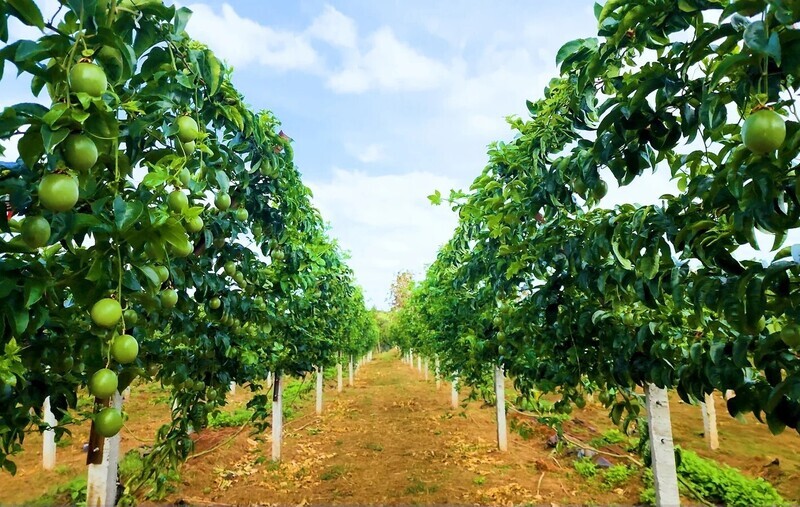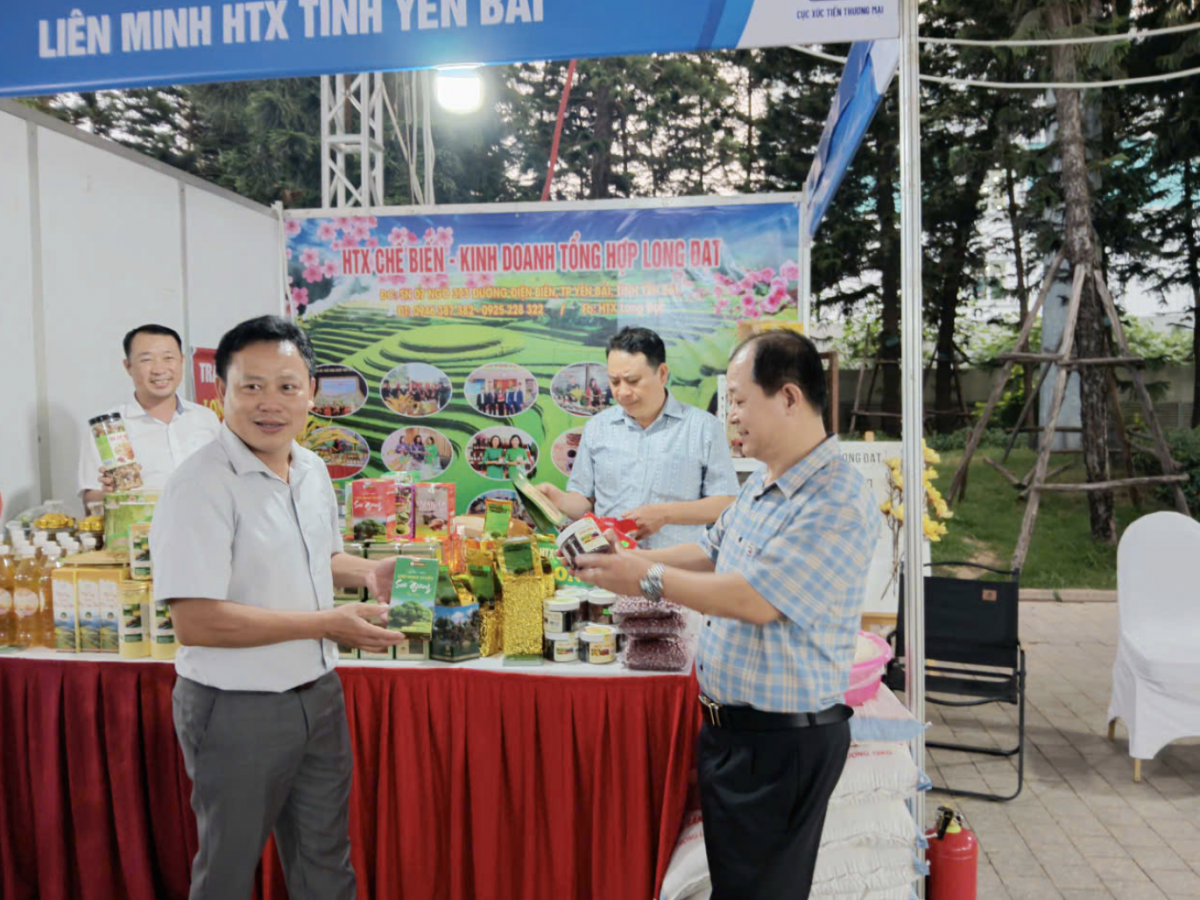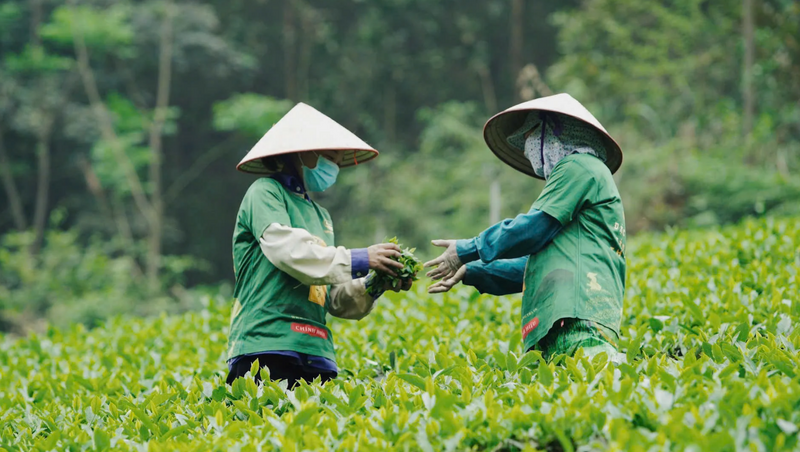
Vietnam’s fruit and vegetable exports to EU triple in four years
19:05 | 23/03/2025 20:40 | 23/02/2026Trade
In the delicate mist drifting along the mountainside, nestled within remote villages of the Northwestern region, there exist unique products that not only carry the flavors of the land and the sky, but also embody the resilience and aspirations of ethnic minorities. To ensure these cultural treasures don’t remain hidden in secluded mountain markets, there is a pressing need for visionary individuals who dare to think big and act boldly, those who build brands from the very essence of cultural identity.
Vietnam Economic News’ reporter spoke with Nguyen Thi Thanh Huong, Director of Long Dat General Processing and Trading Cooperative in Yen Bai Province, about the cooperative’s efforts to develop distinctive brands and enhance the value of ethnic and highland products.
 |
| Nguyen Thi Thanh Huong, Director of Long Dat General Processing and Trading Cooperative in Yen Bai Province. |
Awakening cultural identity to build sustainable brands
What has been your biggest concern in the journey of building brands for ethnic minority products?
What concerns me most is how to ensure traditional values are not lost in the whirlwind of modern life. As highland products are wrapped in a new, more luxurious and marketable appearance, I often ask myself: How much of the old flavor and mountain identity still remains?
Sometimes, in the rush of modern life, it saddens me to see our hometown products being overly altered, retaining only the name but losing their soul. That’s why our cooperative is committed to preserving traditional processing methods. We want every bite of our smoked buffalo meat to retain the essence of highland kitchens and the misty smoke curling around stilt houses.
We hope that no matter how far our products go, even when placed on brightly lit urban shelves, they will still evoke images of a cozy stilt house, the sound of a love flute, and the forest’s fragrance in each smoky, savory slice.
What difficulties has the cooperative faced in developing ethnic-brand products?
The biggest challenge has been changing the production mindset of local people. For generations, ethnic minorities have been accustomed to small-scale, subsistence production, making goods mainly for household use or for sale within the village without the ambition to reach larger markets.
We understood from the start that changing this mindset couldn’t happen overnight. It requires patient efforts, like a spring gradually soaking into stone. We worked with local people from the most basic steps: from raising free-range buffaloes in vast forests, to selecting clean ingredients, and maintaining hygiene in every batch, every kitchen. Eventually, the people began to see the value of their own products, not only fetching higher prices but also gaining love and respect from distant customers. They started to feel pride, recognizing that their work carried both honor and the dignity of the highlands.
As for the cooperative, we believe that a brand cannot be built on hollow slogans. It must be forged from quality and the sincere dedication of its makers. Each piece of Long Dat’s smoked buffalo meat is a blend of sweat, kitchen smoke, and the bold flavor of the mountains. That taste not only brings people back to the Northwestern region, but also serves as a lasting promise of safety and purity for consumers.
Elevating highland products
As Director of Long Dat General Processing and TradingCooperative, can you share your efforts to enhance the value and brand identity of ethnic minority products?
As a child of the Northwestern mountaious region, I deeply understand how every piece of land and every breeze shapes the soul of this region. The products here are not merely a livelihood. They are cultural distillations, telling stories of mountains, of hard-working hands, and the proud hearts of ethnic people.
When we established Long Dat General Processing and Trading Cooperative, it wasn’t just about making products for sale. We carried a desire: to ensure each item sent to consumers contains the full spirit of the highlands, the drifting kitchen smoke, the aromatic flavors that travel through misty mountain passes.
With smoked buffalo meat, a culinary icon of the Mong and Thai people, we preserve the traditional taste while improving processing standards for food safety, attractive packaging, and commercial viability, ensuring the product can enter high-end markets without losing its identity.
Every step, from selecting free-range buffaloes raised on mountain peaks, to seasoning, fire-smoking, and careful packaging, is treated with devotion, as if embedding a piece of the highlands into the product. We want consumers to not just enjoy an exotic taste, but to feel a deep green memory of the Northwestern mountains with each package they open.
 |
| Each item becomes a silent “ambassador,” telling beautiful stories of the highlands, so that when one holds a mountain specialty in hand, one can also feel the freshness, purity, and vibrant vitality of the highland soul. (Photo: Ngoc Hoa) |
In your view, what is the key solution to help ethnic minority products go further and establish long-lasting brands?
I firmly believe that the root of sustainability lies in pride. When every highlander realizes that their native products are not just means of subsistence, but are treasures passed down from ancestors, symbols of the majestic mountains and waterfalls, they will value every batch of meat, every handful of herbs, every drop of sweat poured into their fields. Only then can traditional crafts survive, and local specialties find their footing in larger markets.
However, this journey cannot rely solely on internal strength. We hope for more support from the Government and organizations to help our people access modern processing technology and improve preservation techniques, so that the forest flavors can be preserved without compromising the expectations of modern consumers.
More importantly, branding highland products should be viewed as a mission to preserve identity. We cannot stop at attractive packaging. We must breathe into the products a story, a soul, and a unique cultural imprint, so that when they leave the hands of highland artisans, they carry with them a whole region’s memory.
Finally, what I worry most about is opening new paths, breaking barriers so that our people’s products can traverse rugged mountains to reach consumers everywhere. When lowland consumers understand, appreciate, and cherish highland goods, that’s when our brands truly touch hearts, firmly rooted without the need to chase recognition.
Thank you for your insight!
Each product crafted by ethnic minority communities is not merely of economic value, it embodies the spirit of the mountains and forests, the soul of generations who have toiled to build a life in harmony with nature. Behind every ripe tao meo apple, every vibrant brocade thread, or every aromatic coffee bean lies a story of enduring labor, of customs and rituals preserved through countless seasons of mist and wind. Preserving and developing the brand of highland specialties is not only an act of cultural conservation, it is also a way to spread the unique cultural identity of these regions across the country and beyond. It is how traditional values continue to shine amid the rhythm of modern life, how the sound of the khen (bamboo flute), the graceful dances, and the fragrance of Northwestern forests remain ever-present on the path of integration. On that journey, every product is more than a material gift, it carries a message of national pride, an aspiration to rise, and a resilient will to protect cultural roots. Each item becomes a silent “ambassador,” telling beautiful stories of the highlands, so that when one holds a mountain specialty in hand, one can also feel the freshness, purity, and vibrant vitality of the highland soul. |

19:05 | 23/03/2025 20:40 | 23/02/2026Trade

19:05 | 23/03/2025 20:38 | 23/02/2026Trade

19:05 | 23/03/2025 20:30 | 23/02/2026News and Events

19:05 | 23/03/2025 20:29 | 23/02/2026News and Events

19:05 | 23/03/2025 20:14 | 22/02/2026News and Events